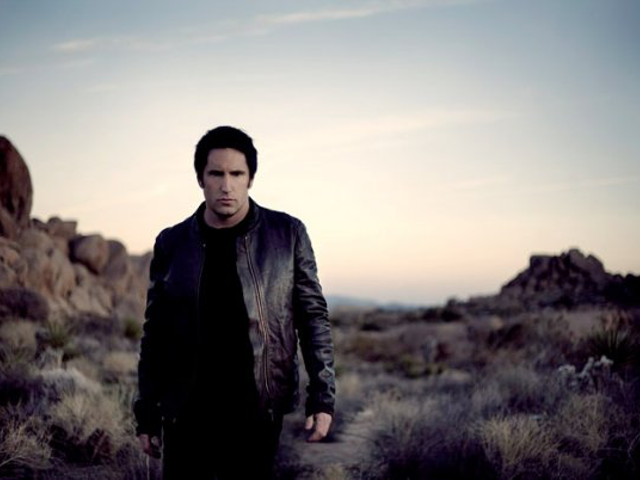Wy Lynn Rose, frontwoman of Louisville hardcore band Transgression, was leaning on a wall at the downtown Spinelli’s Pizza, explaining to me how the political messages in her music have changed. At first, the songs were didactic anthems, calling attention to politics, screamed at top volume. But as she wrote more music, that began to change.
“It felt weird,” Rose said. “I was like, this song isn’t lyrically discussing a queer or trans issue. But it is, because it’s coming from my perspective, whether I’m talking about being trans or not.”
Radet 5, guitarist in the four-person post-punk band Bathroom Laws, agreed: “We’ve gotten more into personal stuff. But the personal is political. We always wanted to show both sides. But they are always going to be interpreted as political. They are always going to be shaped by politics.”
Bathroom Laws and Transgression each have a strong presence in the local scene, but at this particular moment, the trans/queer end of the Louisville music zeitgeist is dominated by GRLwood.
The two-person, self-described “scream pop” act consists of guitarist Rej Forester and drummer Karen Ledford. They’ve been performing locally several times a week, with a frequency that defies the standard wisdom about not over-saturating the scene with your presence. But whatever they’re doing, it works. Their shows are packed, and their aggressively catchy song “Bi-sexual” was recently featured on NPR’s “All Songs Considered.”
These LGBTQ musicians are pushing the city’s most progressive and important edges of punk. Sometimes, they do it by being outspoken or confrontational. But, more often, it’s just by being themselves.
And in a political climate that has highlighted hatred, that is a revolutionary act.
“I feel like, because of us, a lot more people in the scene have, like, grown more comfortable expressing themselves and being openly queer in the hardcore community,” Rose said.
Transgression
When I met with Lynn Rose and bass player Raven Blessinger at Spinelli’s, it was at a show. The spacious basement restaurant often doubles as an underground indie venue.When I arrived, the female-fronted TraumaxQueen was finishing up. Rose is up on the floor moving, jumping and bouncing. She’s not quite slam dancing, but her energy definitely screams hardcore.
At 20 years old, Rose has spent four years in Louisville’s hardcore scene. She started Transgression to address a very specific absence she saw.
“I didn’t really see a huge presence of queer people in the scene,” Rose said. “At least, it wasn’t something that was vocally discussed in music.
So in the time-honored tradition of hardcore, she started a band with her friends, several of whom didn’t initially play instruments. In addition to Rose and Blessinger, Transgression is rounded out by Blake Herbert, Seth Lewis and Kamal Ali.
On their website, they call themselves “a collective of queers, screaming, yelling, and refusing to be silenced.”
Making the scene queer-friendly is a goal for Transgression, and that includes trying to make sure that the under-21 crowd is able to see queer people on stage. That underage crowd is a big part of the hardcore scene, according to Blessinger: “I feel like they are a pretty considerable part of the scene — more than half are under 21.”
The hardcore scene is doubly important for queer kids. It’s a place to get away from heteronormativity.
Blessinger’s initial interest in the hardcore scene was just as much about finding a place to get away from abuse at home as it was about the music. Rose admits there is so much more work to be done, but says the collective feels like they are making progress.
Bathroom Laws
The members of Bathroom Laws, who’ve been playing together for almost four years, expressed a more jaundiced view when I met them at Old Louisville late-night spot Burger Boy. Though several members of the band looked like they were ready to hit the stage, they had a world-weary demeanor.Radet 5 started Bathroom Laws with vocalist Severin Martinez. They were joined soon after by guitarist Alexis Kite. Their current lineup also includes drummer Tom Crowley. Kite, 5 and Martinez all identify as trans. (Crowley opted out of self-description.)
At the beginning they were actively political, but not so much anymore.
“It used to be,” said Martinez. “I feel like I’ve gone in kind of, not in reverse — it’s like when I started doing this I was really angry, and I was just ready to like make things bend to my will. And it just seems I’m more and more disillusioned with queer communities... us just existing at all is kind of intense. We’ve just been trying to... caring for ourselves is difficult.”
While Bathroom Laws’ frustrations with the scene come from four years worth of individual experiences and aggressions, both micro and macro, one night stands out to Martinez, 5 and Kite. The night of the G.L.O.S.S. show.
G.L.O.S.S. was a trans-feminist hardcore punk band that started to break big in the summer of 2016. They released a demo that was big in the hardcore scene, and they went on tour.
“And they came here,” said 5. “And we were pretty pumped, and a bunch of the trans people were like, ‘Oh shit, we’ve heard of this.’”
Excited to catch a punk band that was shedding light on queer identity at a national level, the trans punk and hardcore scene turned up, as did a large portion of the rest of the hardcore scene.
But this show, fronted by an out trans person, exposed the transphobic underbelly of Louisville’s scene, according to Martinez: “Like, every trans person that I know that showed up for that show got harassed at the show. And then when we talked to the promoter he denied that it could have even happened. He said we were too sensitive.”
Because Louisville’s hardcore scene just couldn’t be bigoted or transphobic, right?
5 said transphobia is so baked into society that no one can just opt out.
“Motherfucker, I’m transphobic, and I’m a transwoman,” said 5. “If I have to fight through this every fucking day, in my own head, you have to fight through it in your head. Challenge your thoughts.”
GRLwood
My meet-up with GRLwood happened just before one of their shows, in the back room of Kaiju. Leford came ready, her signature red line already painted down the middle of her face.The duo won’t even turn one until the end of August, but Forester and Ledford already seem like they’ve known each other forever.
Forester says that their music, which is political by default, attracts music fans who are sick of what she describes as a sort of mono-myth that permeates mainstream, cis-het music.
“It’s the same narrative over and over again, and a lot of people hear it, and it’s normal to hear that narrative,” Forester said. “But it’s not giving a platform to, actually, a lot of fucking people that do relate to charged topics. Not everyone is a 17-year-old white boy that hates his hometown.”
Forester also points to the polarized political atmosphere forcing people to one extreme or the other.
“All these people that, maybe 10 years ago, were like normal dudes, whatever,” Forester said. “Now you’re like, ‘They are super-duper sexist, misogynist or racist.’ And they’re like ‘Oh, you’re just some super-radical, feminist, queer, theorist, homosexual, transgender whatever.’”
Leford agreed, adding, “People are being made to choose sides.”
Forester doesn’t necessarily see herself as far left, though she says GRLwood gets categorized that way.
“I may not agree with that, but if our personal experiences help someone relate and understand better, themselves, then I’m happy for what GRLwood is doing,” Forester said.
Our conversation was cut off — Forester and Ledfor had to go prep for their set. A half hour had passed, and the back room of Kaiju was packed to the walls. While there were definitely plenty of heteronormative-looking scenesters getting down, there were even more queer kids — boys and girls and those who identify as neither.
Transgression, Bathroom Laws and GRLwood all make music. They don’t yet get to opt in or out of writing protest music. Sometimes they are trying to start shit. But, more often, they’re just doing what artists across a whole bunch of media have always done.
“Really we’re just being ourselves,” said Forrester. •
This story is part of the 2018 Music Issue. To read more stories from the issue, click here.






